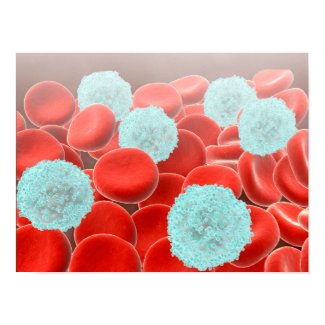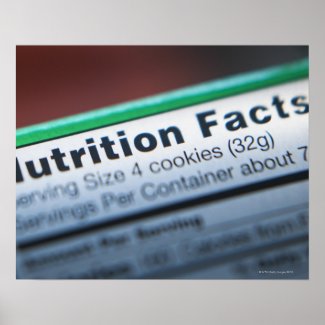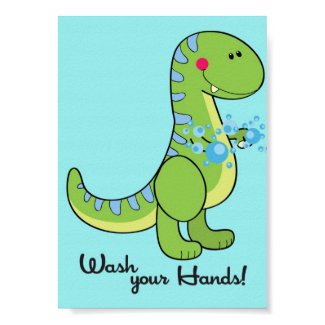 Do you dread winter rolling round because you know it marks the beginning of you suffering from one cold after another?
Do you dread winter rolling round because you know it marks the beginning of you suffering from one cold after another?
Does the sound of a sneeze or a cough make you want to run in the opposite direction because you know that if you’re anywhere near that germ factory you’ll certainly catch whatever they have?
A lot of us have a tendency to keep getting sick, but why does this happen? And why does it happen to ME and not to other people?
Why do I keep getting colds?
Each of us has a different history, a different story, and for this reason it’s important to bear in mind that the reason why you keep getting colds may be different from the reason why Mr Jones next door might be suffering from the same problem.
Here are some of the possible causes why you might keep getting a cold, and what you can do about it.
 1. An imbalance in immune cells makes us more prone to catching colds
1. An imbalance in immune cells makes us more prone to catching colds
White blood cells are an important part of the immune system, and although we have a lot of different types of white blood cells, two important ones to consider when you’re looking at someone with recurrent infections, are the T-helper cells: Th1 and Th2 cells. Th1 cells are responsible for dealing with illness-causing-bacteria and viruses, whereas Th2 cells are predominantly involved with dealing with allergens. A healthy person has a good balance of Th1 and Th2 cells whilst an imbalance in either direction predisposes us to a range of immune system-related problems. If there is an imbalance, where Th1 is low, your defence against bacteria and viruses will be reduced and you will be more prone to catching colds. As Th1 decreases, Th2 increases (because these two are balanaced in a see-saw manner), so such a state is called “Th2 dominance”. When a person has Th2 dominance they are more prone to allergy-type conditions like asthma, hayfever, eczema and allergies. If you have recurrent colds as well as one of these allergy-type conditions, Th2 dominance may well be behind your frequent colds.
Why would a person be Th2 dominant?
At birth we’re all born Th2 dominant but usually this is balanced out through a healthy diet and lifestyle. It may be partly for this reason that a lot of children grow out of some childhood allergies and immune-related problems like asthma. If this Th2 dominance is not balanced out in infanthood, you could maintain this Th2 dominant tendency throughout life, being more prone to allergies and catching infections than others.
How do you balance the Th1-Th2 ratio to build up a stronger immunity?
One of the most effective ways of balancing out a poor Th1-Th2 ratio is through ensuring we have a healthy immune system around our gut, where approximately 60% of our immune system lies. The immune system in our gut is called the GALT (Gut-Associated Lymphoid Tissue) and the GALT is kept strong by having beneficial gut bacteria interacting with the GALT. For this reason, if you’re prone to catching colds often, or to having allergies, asthma, or eczema, giving yourself supplementary beneficial bacteria in the form of a probiotic would be an excellent way to keep your GALT strong, to balance out your Th1-Th2 imbalance and fight the problem.
Good probiotics: You could go the gentle route with natural probiotics like *live*, unsweetened, plain yoghurt, or live kefir. I however tend to be cautious about recommending dairy because quite a few people are mildly intolerant to it and it could irritate the gut causing more harm than good. A safer approach for you would be to supplement with probiotics. Some good brands are: Solgar’s Advanced Multi-Billion Dophilus (US) (UK) or Udo’s Choice Super 8 Probiotic (US)
(UK)
or VSL 3 High Potency Probiotic Capsules (US)
(UK)
To maintain a healthy gut flora alongside the probiotics, it’s recommended to maintain general good digestive function, avoid foods that irritate your gut like foods you may be intolerant to, and avoid foods that feed the “bad” bacteria like sugary foods and simple, refined carbohydrates. Eat food that feeds the good bacteria (such foods are called “prebiotics”). Prebiotic foods include: oats, legumes, asparagus, barley, burdock, chicory dandelion garlic, globe artichoke, Jerusalem artichoke, leek, onion, and rye.
Taking antibiotics weakens the GALT immunity, and therefore weakens the immune system, so probiotics are particularly important to take after a course of antibiotics. Generally it is good practice to take probiotics whilst you are taking antibiotics, although take the probiotic several hours away from the antibiotic otherwise the medicine will just kill off the good bacteria immediately. So if you have the antibiotic in the morning, have the probiotic in the evening.
How long should you take probiotics for to maintain a healthy immune system?
It’s a bit controversial. Some people say you should take probiotics continuously without an end in sight in order to maintain a healthy immune system, otherwise your natural inborn tendency for Th2 dominance may return. Other people recommend building up a good bacterial coating of your gut with a course of probiotics for couple of months, and then you can stop, and top it up as required, for example, having a course of probiotics once every couple of months as part of your personalized wellness program. Not everyone would need probiotics as part of their wellness program, but someone who has suffered from Th2 dominance, recurrent infections for most of their lives and/or from asthma, eczema, hayfever or allergies, would benefit from them.
2. Nutritional deficiencies may be behind a weak immune system
 Some people have a perfectly well-balanced Th1-Th2 ratio, but the cause behind their recurrent infections is a deficiency in the nutrients which keep the immune system strong.
Some people have a perfectly well-balanced Th1-Th2 ratio, but the cause behind their recurrent infections is a deficiency in the nutrients which keep the immune system strong.
The main nutrients involved in keeping a strong immune system include:
- Zinc: Taking around 40mg a day would help maintain a strong immune system, amongst other benefits of zinc. A good zinc supplement is Solgar’s Zinc Picolinate (US), (UK), where you’d take 2 tablets a day for a therapeutic dose of 44mg.
- Vitamin C: Taking 500-1500mg a day would be beneficial to staving off infections.
Some good brands of vitamin C include:
- Biotics’ Mixed Ascorbate Powder 300 G (US)
This is high dose vitamin C so a quarter teaspoon twice a day would be plenty (that would give you a total daily intake of 1384mg). I recommend the powder because this is best for absorption. Note: Very rarely, some sensitive people who aren’t used to taking supplemental vitamin C might get an upset tummy from supplemental vitamin C. If this is the case, reduce the dose to a quarter teaspoon (682mg) a day and see how you go.
- UK alternative: Biocare’s Mixed ascorbates: Again, tailor the dose so that you’re getting 500-1500mg a day, building up gradually. - Protein: Our immune cells are made up of protein components, so to ensure we have a strong army of immune cells to protect us, we need enough protein in our diet. Some great protein-rich foods to include in your diet are: oily fish, eggs, chicken, turkey, nuts, seeds, and legumes (e.g. beans, peas, lentils) or ingredients like hummus and tahini. Most of us don’t eat enough protein, and this can express itself in different ways in different people, but in some of us it is expressed by a low immune system. Having high protein snacks like a protein powder shake can be a great way to top up your protein levels. A good protein shake powder you can try is Solgar’s “Whey to Go” which gives 16g protein per portion and comes in Chocolate (US)
(UK) or Vanilla flavour (US)
(UK) . There are also a few more flavours available in the US (e.g. Strawberry
and Mixed Berry
)
- Iron: Iron is required to make healthy white blood cells and maintain a healthy immune system, so if you suspect you may be anaemic, get a blood test done with your doctor. Iron is one of the supplements that should not be given unless tests show you require supplementation because excessive iron can cause oxidative damage to your body. Only if you have been tested and found to be anaemic, some good iron supplements on the market are: Spatone (US)
(UK) or Salus Haus Floradix Iron liquid supplement (US)
(UK)
3. Stress suppresses the immune system
 There are two branches of our nervous system: One branch is the “fight or flight” (aka sympathetic) branch which is activated in times of stress and the other branch is the “rest and digest” (aka parasympathetic) branch which is responsible for repair and immunity amongst other things. The way the nervous system works is that only one branch of the nervous system can be prominently active at any time.
There are two branches of our nervous system: One branch is the “fight or flight” (aka sympathetic) branch which is activated in times of stress and the other branch is the “rest and digest” (aka parasympathetic) branch which is responsible for repair and immunity amongst other things. The way the nervous system works is that only one branch of the nervous system can be prominently active at any time.
When we are exposed to the stresses of life, which may be anything from emotional stress, work stress, to chemical stress from things like cigarettes and a poor diet, the “fight or flight” branch of the nervous system is switched on, which means that the pro-immunity “rest and digest” branch is suppressed.
If you’re constantly exposing yourself to stressors, your “rest and digest” is constantly suppressed, and as a result, so is your immune system.
There may be a lot of stressors in life, but some of the main ones which you should aim to eliminate or manage include:
- Chemical stress from things like
- cigarettes,
- pollution,
- alcohol.
- Environmental allergens: Every time you feel an allergic reaction from something in the air, be it dust, or pollen or anything, this is creating a stress on your body.
- Chemical products: Chemical stress could also come from chemicals in soaps, detergents and other products you may be using to which you may have sensitivities. - Dietary stress: inflammatory foods and a diet that’s rich in junk food, sugar and trans fats, suppresses the immune system. Inflammation from food utilizes the immune system resources and energy so that there is less energy available for general body defence.
Another source of dietary stress could be from undiagnosed food intolerances and allergies which bombard the gut with food particles that rally an immune response.
If you find yourself with a lot of mucus and phlegm constantly, even when you’re not sick, there is a good chance that some food you’re eating is causing inflammation because phlegm is produced as part of the inflammatory response. Alternatively, constant phlegm could be from another allergen in the environment. - Physical stress from:
- lack of sleep,
- exposure to extreme cold or heat is a stress on the body which is partly why people may associate the depth of winter with catching colds - Emotional stress from work, relationships or other unhappy life situations.
- illness: Every time you feel unwell, whether it’s from acid reflux, or just a headache, this is stressful for your body. Some people have a chronic, quiet bug lying in their body, for example a parasite in their gut, or a fungal infection in their sinuses, and this drains the resources of the immune system.
- Excessive exercise is also a physical stress on the body which definitely puts the body in “fight or flight” mode, particularly whilst you’re exercising. This is why people find they often pick germs up in gyms. Gentle, moderate exercise however strengthens the immune system.
4. Poor Body Hygiene and Poor Oral Hygiene increases exposure to bugs
 Washing your hands after you’ve been to the bathroom or after you’ve been touching railings or elevator buttons in public places can help reduce your exposure to bacteria. If there aren’t washing facilities nearby, try to avoid touching your face, eyes, nose and mouth if your hands are not clean. Sucking on the ends of pens, or chewing dirty fingernails can also increase you’re exposure to bacteria. It’s important not to get OCD about germ-avoidance, but it’s something to keep in mind.
Washing your hands after you’ve been to the bathroom or after you’ve been touching railings or elevator buttons in public places can help reduce your exposure to bacteria. If there aren’t washing facilities nearby, try to avoid touching your face, eyes, nose and mouth if your hands are not clean. Sucking on the ends of pens, or chewing dirty fingernails can also increase you’re exposure to bacteria. It’s important not to get OCD about germ-avoidance, but it’s something to keep in mind.
Breaks in the skin are also breaks in our immunological barrier, so maintaining healthy skin is important to keep germs out of our bodies. Some nutrients which are important for healthy skin include essential fatty acids (eg a good fish oil supplement like Eskimo-3 Liquid Fish Oil (US) (UK) ) and a sufficient intake of protein.
If you have poor oral hygiene, bacteria builds up in your mouth, you swallow it, and become exposed to more bacteria than usual. Maintaining good oral hygiene is therefore important to keep your body free from excessive exposure to baddies, which could wear the immune system down.
Some people suggest that the practice of oil pulling can help fight pathogenic bacteria that build up in the mouth. A good book on Oil Pulling is: Oil Pulling Therapy: Detoxifying and Healing the Body Through Oral Cleansing by Bruce Fife
5. Low Stomach acid increases risk of catching things
Stomach acid is one of the body’s defences against bugs which enter our body. If we don’t have enough stomach acid, we may be at increased risk of infection. Low stomach acid, also known as hypochlorhydria may occur for a wide array of reasons including low zinc levels, old age, antacid use, or other causes. Studies have found that people suffering from some conditions, such as asthma and eczema, have an increased likelihood of having low stomach acid.
You can check whether you have low stomach acid by doing the very classy Bicarb Burp Test. This involves the following: First thing in the morning, before you eat or drink anything, mix a generous one quarter teaspoon of baking soda in eight ounces of cold water. Drink this delicious concoction and have a stopwatch at the ready to see how long it takes you to burp. If you have not burped after five minutes, stop timing. The earlier and the more repetedly you burp, the higher your stomach acid is. So if you belch within the first 2 minutes, you have relatively high stomach acid. 2-3 minutes is roughly indicative of “normal amounts of stomach acid” and anything well above 3 minutes indicates low stomach acid production.
You can boost your stomach acid levels by first getting to the root of why you might have reduced acid production, and then treat the problem from there. Some things that can help include ensuring your diet is rich in zinc, or topping up with a good zinc supplement. (Taking around 40mg a day would be helpful. As mentioned above, a good zinc supplement is Solgar’s Zinc Picolinate (US), (UK), where you’d take 2 tablets a day for a therapeutic dose of 44mg.)
6. Psychological & Spiritual Dimension to Getting Colds Often
Unlike the rest of this article which is based on scientific research, this point is based on spiritual thinking, which I felt was interesting to consider as a potential contributor to low immunity.
Aside from stress which lowers the immune system, there is also the idea that if you worry about catching colds, you are more likely to catch them. This is linked to The Law of Attraction. If you think how healthy and strong you are, you are more likely to attract health towards you.
Another element which could be driving recurrent illness is recurrent “irritants” in your life which are wearing you down.
A chronic sore throat could be linked to a habit of not speaking your mind although you’re itching to do so.
A tendency to sneeze or cough often could be linked to rejecting ideas or other things that are around you which you can’t reject verbally or actively. Sneezing or coughing is like trying to get something out of the system. Is there something in your life you would want to get rid of which you are currently holding on to?
Patch Remedies to Strengthen the Immune System Until you get to the Root Cause
I firmly believe it’s important to get to the root cause of your low immune function. However, until you figure it out, there are a few “patch remedies” you can use to boost your immune system temporarily. These include:
- Echinacea: This herb is famous for strengthening the immune system. You can try sucking on echinacea lozenges like Nature’s Plus – Immune Actin Zinc Lozenges (US)
(UK) , or Vogel’s Echinacea lozenges (UK) . There are also Echinacea throat sprays such as Gaia Herbs’ Echinacea Goldenseal Propolis Throat Spray (US)
or Viridian’s Echinacea throat spray (UK). Please note that Gaia Herbs’ throat spray as well as several others on the market contain licorice and peppermint which may elevate blood pressure so are not recommended for people with hypertension.
- Elderberry aka Sambucol helps with immune support when you have a cold. (US)
(UK)
- Slippery Elm Lozenges to soothe the throat: e.g. Thayer’s Slippery Elm Throat Lozenges (US)
- Marshmallow root tea to soothe the throat
- Medicinal Mushrooms: These are known to boost the immune system nicely.
- Young Living Essential Oils to boost the immune system
There are also some wonderful immune-boosting recipes you can try out. This post on Margot’s Kitchen blog writes about a fantastic immune-boosting soup recipe that contains echinacea root and shiitake mushrooms which are both very nourishing for the immune system.
Note:
This site is working in affiliation with Amazon.com (for USA visitors) and The Nutri Centre (for UK visitors). If you like a product that was recommended anywhere on this website, please consider buying these products via the links on this site, to help keep this website running. Thanks ![]()
Related articles
See other articles in the health section including:
- Why do I need zinc?
- Why do I have bad breath? And why do I particularly have bad breath in the morning?
- Why do I feel tiredness after eating? (and what can I do about it?)
- Why does my stomach make noises? (and what can can I do about it?)
- Why does my energy and well-being level change at specific times of the day? The Chinese Body Clock
- Why do I blush?
Disclaimer:
Every effort has been made to ensure that the information contained in this article is accurate. However the information contained in this article is for educational purposes only. Suggestions contained in this article are not intended as a substitute for consultation with a health professional. All matters regarding health and supplementation require medical supervision, careful examination of contraindications, and consideration of possible interactions with medications. The author does not accept responsibility for the use of this information, nor shall the author be liable for any loss, injury or damage allegedly arising from any information or suggestions in this article.



Woah! I’m really digging the template/theme of this website. It’s simple, yet effective. A lot of times it’s very difficult to get that “perfect balance” between superb usability and visual appeal. I must say you have done a very good job with this. In addition, the blog loads extremely fast for me on Safari. Outstanding Blog!
Very interesting entry, I look forward to the next! Thx for share
one of the greatest posts i’ve read on this topic
All of my questions settled – thanks!
Stellar informativ publish. Thank U for these assisting facts. Lookin’ ahead for ur following article. Cheers
My brother recommended I may like this website. He used to be entirely right. This publish truly made my day. You cann’t consider simply how so much time I had spent for this info! Thanks!
Thanks for detailed information, this explains a lot, i could name plenty of the factors mentioned on why i keep catching colds.
This information is top notch, hopefully it will help me now stop getting 1 cold per month or whatever it is. Very thorough and some top information with background data as well. Cheers pal
Wow! I was turned away from getting my allergy shot today because I just caught a cold. In frustration, I googled my frustration and this site popped up. I’ve now taken my probiotics and drinking emergen-C. This gave me hope that I can rebalance my body naturally and holistically instead of treating symptoms separately. Thank you!
This is remarkable. I have been sick for the past 6 weeks, and prior to that, the year has been fraught with illness. I’m headed to my doctor and I plan to inquire about many of your recommendations. I don’t want more antibiotics. I want to get to the root of the problem and I think this will help. Thank you.
such a well written and informative article. will surely try some if the recommendations.thanks!!!
Very comprehensive and interesting article. However, one potential inconsistency: you note that extreme temperatures (hot or cold) are associated with stress and consequently reduced immunity, and that is possibly why winter is considered the time for colds, the flu, etc. But there is little if any evidence of cold/flu season striking hot climates in the summer. This leads me to think that cold is perhaps a greater stress than heat.
You totally forget the main nutrient to preventing colds which is Vitamin D. Research it and you will see
Thank you for explaining everything in so much depth! Very interesting and educational!